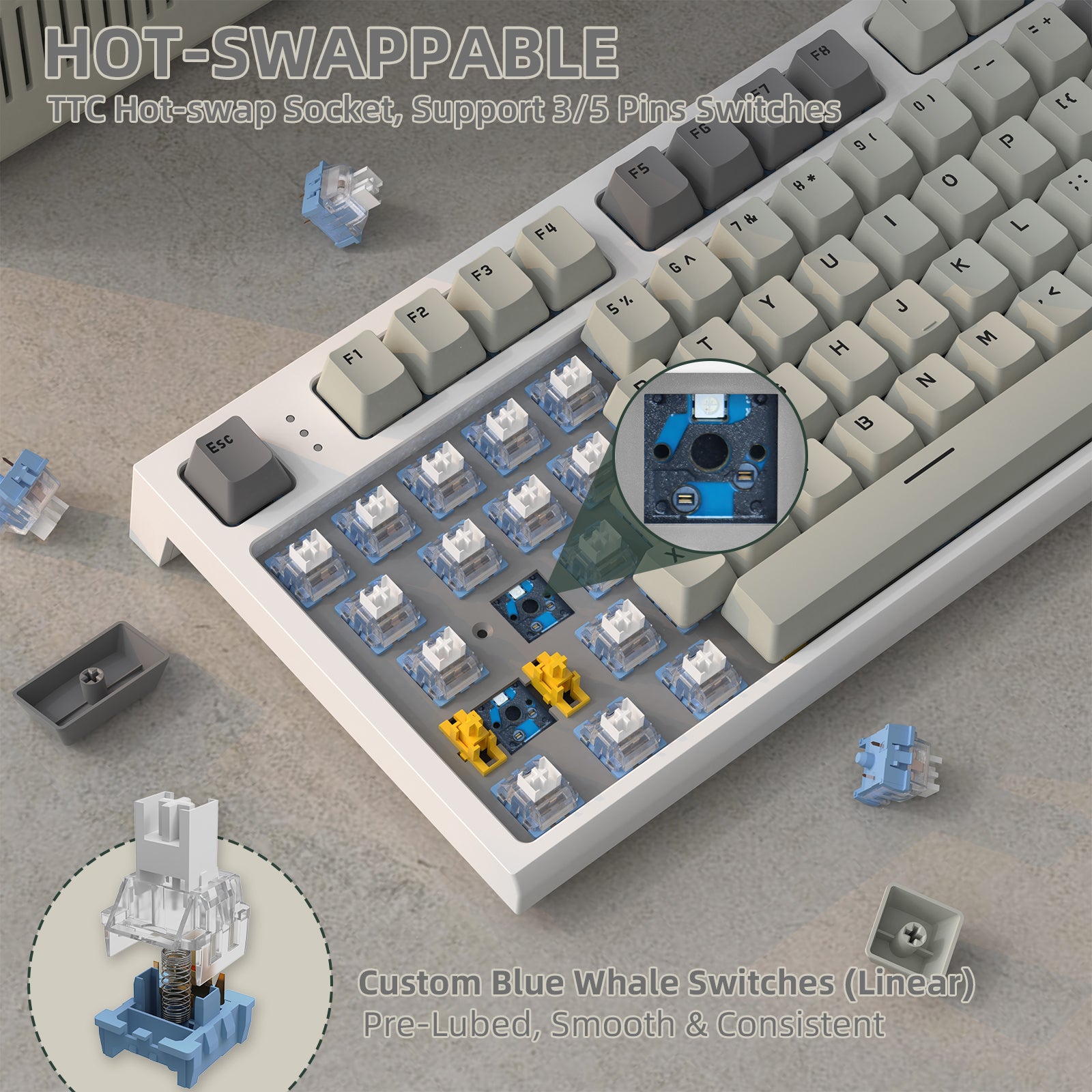Unlock the Ultimate Typing Experience: Discover the Magic of Tactile-Feedback Keyboards!
In today's fast-paced digital world, the type of keyboard you use can significantly impact your productivity and comfort. Tactile-feedback keyboards have surged in popularity as users seek a more satisfying typing experience. Unlike standard keyboards, these specialized devices provide a distinct tactile sensation, often described as a "click" or a bump, which can enhance typing speed and accuracy. This article aims to explore the various benefits and features of tactile-feedback keyboards, guiding you through the essential aspects to consider before making a purchase. Whether you're a professional, a gamer, or simply someone who spends hours typing, understanding the value of tactile feedback can transform your daily interactions with technology.

Understanding Tactile-Feedback Keyboards
Tactile-feedback keyboards are designed to provide users with a physical response when a key is pressed, distinguishing them from other keyboard types like membrane or linear keyboards. The key mechanics involve a spring mechanism and a switch that produces a noticeable bump, indicating that the key has been actuated. This feedback is instrumental in helping typists know when a key press has been registered without needing to bottom out the key. Many tactile-feedback keyboards utilize mechanical switches, which are favored for their durability and responsiveness. The technology behind these keyboards is not just about aesthetics; it’s about creating an immersive typing experience that engages users more fully in their tasks.
Benefits of Tactile-Feedback Keyboards
The advantages of tactile-feedback keyboards are numerous and can significantly affect your typing experience. Firstly, many users report improved typing speed, as the tactile response allows for quicker key presses without the need for excessive force. This is complemented by a decrease in typing fatigue, as the keyboard's design encourages a more natural hand position. Furthermore, tactile-feedback keyboards can enhance accuracy; the feedback mechanism helps prevent mistyping by confirming that the key has been pressed correctly. For instance, a friend of mine who transitioned from a standard keyboard to a tactile-feedback model noted a marked improvement in her typing speed during her work as a content writer. She found that the satisfying "click" helped her maintain focus and flow during long writing sessions. User testimonials like hers illustrate the positive impact these keyboards can have on daily tasks.
Key Features to Consider When Buying
When considering a purchase of a tactile-feedback keyboard, several key features should be evaluated to ensure it meets your needs. The first is key travel distance, which refers to how far a key must be pressed before it registers a keystroke. A shorter travel distance can enhance typing speed, while longer distances may provide a more satisfying feel for some users. Next, consider the switch types available; different switches produce varying levels of tactile feedback and sound. Additionally, ergonomic design is crucial for comfort during extended use. Look for keyboards that offer wrist support and a layout that minimizes strain. Customization options, such as programmable keys or backlighting, can also enhance your typing experience. Evaluating these features based on your personal typing habits will lead to a more tailored and enjoyable experience.
Popular Use Cases for Tactile-Feedback Keyboards
Tactile-feedback keyboards excel in various scenarios, making them a versatile choice for different user groups. For programmers, the tactile response can lead to increased efficiency and reduced errors while coding, as they can quickly feel when a key has engaged. Gamers also benefit greatly from tactile keyboards, as they provide more responsive controls, enhancing reaction times during fast-paced gameplay. Moreover, writers and content creators find that the satisfying feedback contributes to a more engaging writing experience, allowing thoughts to flow smoothly onto the page. Each of these scenarios illustrates how tactile-feedback keyboards can cater to specific needs, making them a worthwhile investment for anyone looking to improve their typing experience.
Enhancing Your Typing Journey with Tactile-Feedback Keyboards
In summary, tactile-feedback keyboards offer a unique blend of comfort, speed, and accuracy that can greatly enhance your typing experience. By understanding their mechanics and the benefits they provide, you can make a more informed decision when purchasing a keyboard. As you consider your own typing habits and preferences, think about how a tactile-feedback keyboard might fit into your daily routine. Investing in a quality keyboard is not just about functionality but also about creating a typing experience that is enjoyable and productive. Embrace the magic of tactile feedback and unlock your ultimate typing potential!








